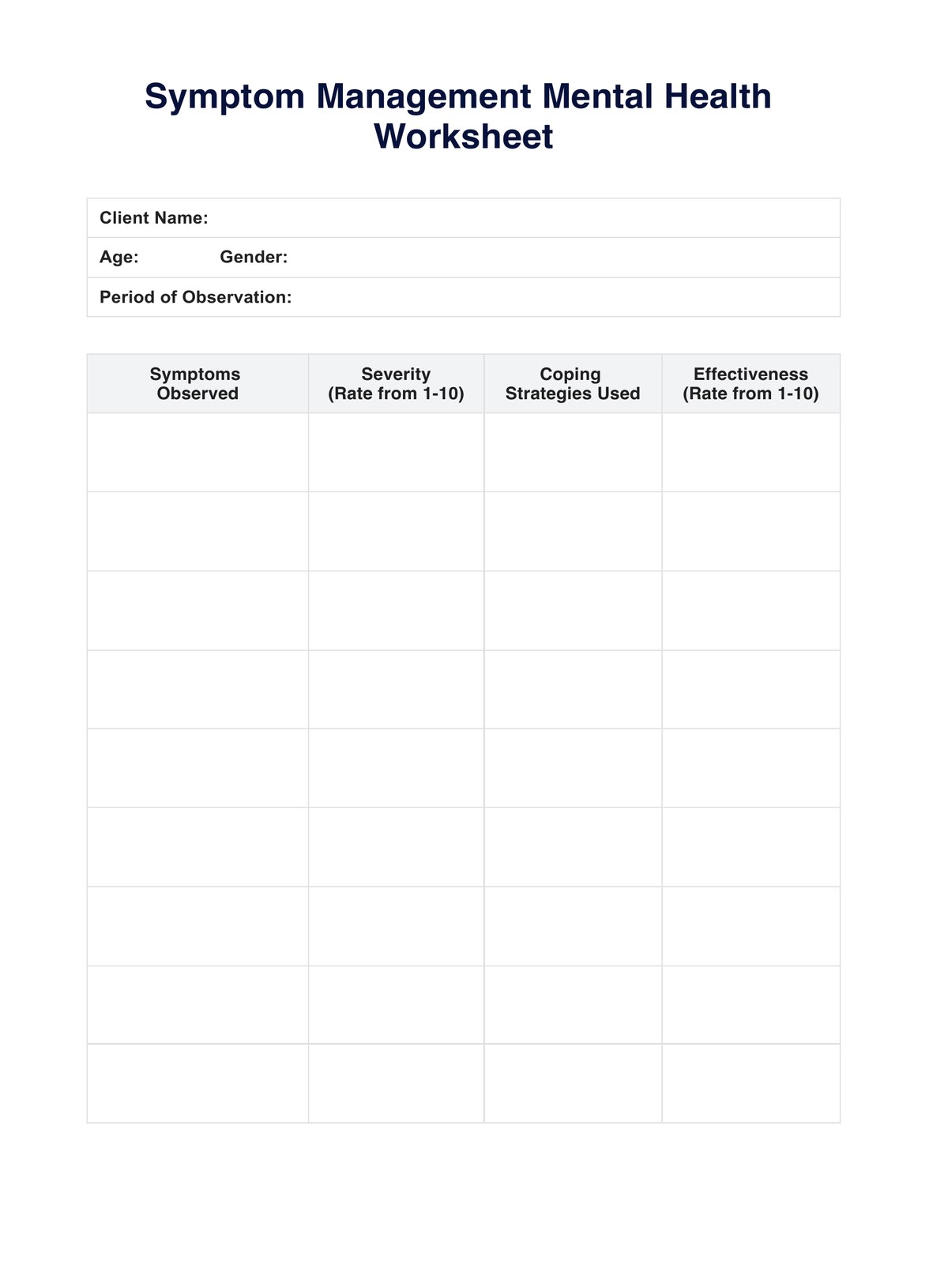Mental health symptom management involves identifying, monitoring, and addressing mental health symptoms using a variety of strategies. These strategies include therapy, medication, lifestyle changes, coping techniques, and, in severe cases, hospitalization.

Symptom Management Mental Health Worksheet
Use the Symptom Management Mental Health Worksheets to engage clients in their treatment and encourage a proactive approach to managing symptoms.
Symptom Management Mental Health Worksheet Template
Commonly asked questions
The data gathered from these worksheets provide healthcare practitioners with a detailed understanding of the patient's condition, informing the decision-making process for treatment plans. Such tools foster a collaborative care approach, enhancing the patient-healthcare provider relationship.
Ideally, symptom management worksheets should be used daily to describe a patient's mental health status accurately. However, the frequency might differ on a case-by-case basis depending on your healthcare provider's advice.
EHR and practice management software
Get started for free
*No credit card required
Free
$0/usd
Unlimited clients
Telehealth
1GB of storage
Client portal text
Automated billing and online payments











